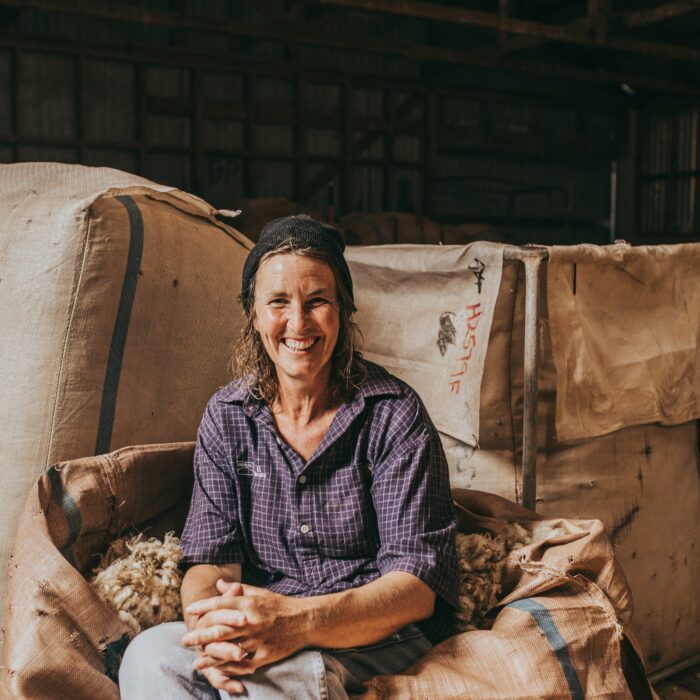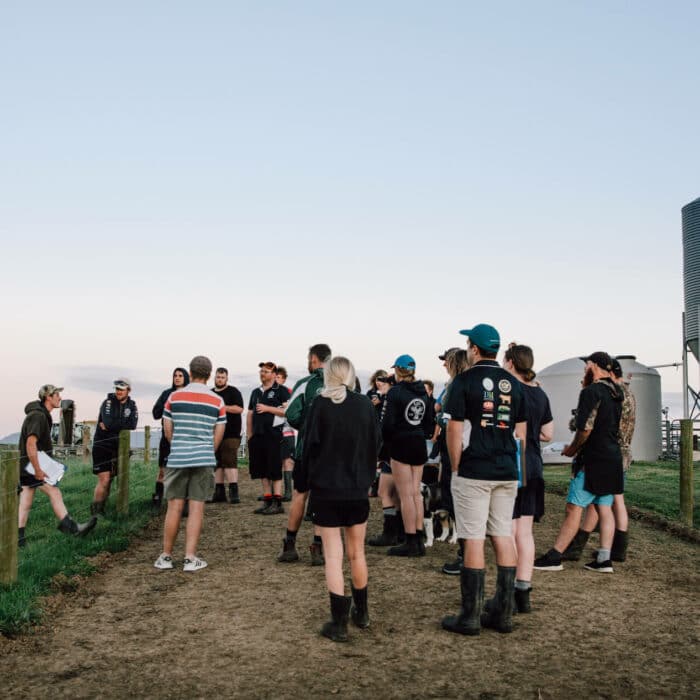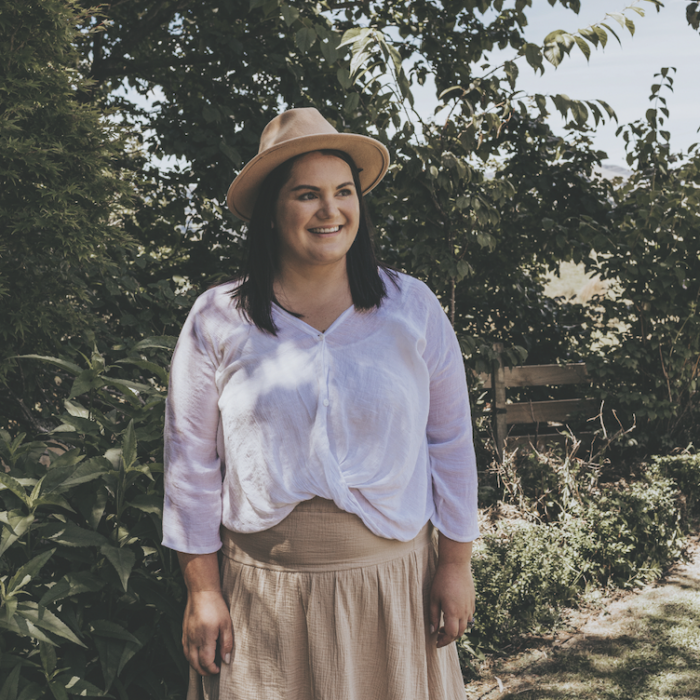20 November 2022
“You feel like you’re part of something and part of the community”: two Canterbury mothers helping to run a small rural preschool
writer: PETRA NYMAN
photographer: MATT SEARLES
After five years as treasurer of tiny Peel Forest Preschool, Kiri Rupert is about to hand over the reins to Louise Aubrey. They talk about what is involved in volunteering at a community-run country preschool.

At the end of the seemingly boundless country roads that zigzag across the Canterbury Plains sits the petite mountainside village of Peel Forest. The township, framed by the Rangitata and Orari rivers, is nestled at the foot of the Southern Alps and the Peel Forest Reserve – well-known for its waterfalls and stunning native bush walks.
This remote settlement has a permanent resident population of fifty. There is little more to the village than a hall, a vibrant bar and cafe, and a preschool – a preschool that happens to be the most magical and down-to-earth place that rural kids (and parents) could dream of.
Peel Forest Preschool exists due to the mighty will and hard work of parent volunteers who devote hours of their time to keep the much-loved community asset going year after year. Kiri, 33, mother of Liam, 7, and June, 4, and outgoing treasurer of the preschool, lives ten kilometres away on the family’s deer farm. “I took on the role [of treasurer] when my daughter was three months old, and while we were also going through the farm’s succession. You take on these responsibilities when you’re kind of at your worst, but somehow you make it through,” Kiri reflects.
“I remember looking through the first budget as treasurer and there was just no money. I sort of panicked and felt like there was no way we could function. But then someone reassured me that the money would come, and here we are, still going nearly five years later. Over the years I’ve learnt that the budget fluctuates; there are some stressful periods and then there are better ones. The preschool has been going for eleven years, and we have a kind of not-on-our-watch mentality. You just push on through, put in the work and make sure your kids and their friends have this place to come to – and that local parents have this service in their community.”
The white weatherboard building at the heart of the preschool was originally a school, and there are ‘tags’ in the weatherboards of the verandah from children who attended in the sixties and seventies. After that school closed in the nineties, the building housed a Montessori school before the current preschool – set up by parents – found its home there in 2011.
“Education in some form has happened here for around 150 years,” Kiri remarks. “If the building wasn’t here, we wouldn’t exist – if it burned down tomorrow, I’m pretty sure that would be it. It’s got a legacy and everyone involved in the volunteer work here just wants to see it continuing.”

The preschool committee consists of a maximum of eight roles, all of which are held by volunteers. “There are varying roles that take up different amounts of time. I spend at least fifteen hours a week in my role, which includes paying the wages of our wonderful teachers, dealing with GST, any fundraising funds we gather, and so on,” Kiri explains.
The lead volunteer role is that of the chairperson, a position that functions as a bridge between the preschool manager and the committee. “It’s a huge role and people don’t tend to stay in it for more than two years,” Kiri says. But the very existence of the preschool relies heavily on volunteers; without them and the work they do, it wouldn’t survive. The committee, centre manager, teachers and community have worked hard over the past year to increase the number of children enrolled to support the sustainability of the preschool.
Fundraising is a big part of the operation, and is quite unique to the rural setting: one of the most recent fundraisers saw donations of forty calves for auction from local farming families. “We’ve recently been fundraising towards turning our current entrance into a sleeping area, so that the preschool could open up for younger kids as well. In a way, we’re trying to future-proof in case we don’t have enough numbers of older kids in the coming years.” Currently the preschool is licenced for eighteen children between the ages of two and six years.
While the teachers are fully qualified and paid with help from the government, fundraising is the thing that keeps the preschool going. “We all feel that the preschool is the next best thing to keeping our kids home. We do the volunteer work for ourselves as much as for others. It’s rewarding and I feel privileged to be doing it,” Kiri says.


Louise, 38 and mother of Jack, 3, and Alice, eighteen months, is the incoming treasurer of the preschool. She lives on a high-country Merino sheep and beef farm forty minutes inland from the preschool, works twenty-five hours a week for Ballance Agri-Nutrients in the innovation team as digital project manager, takes part in traditional mustering and a lot of on-farm work, is the primary caregiver of her children and the “washer of mountains of washing.” When asked how she ended up in the treasurer role, she laughs and says she got conned into it.
In all seriousness, Louise shares similar views to Kiri on the importance of volunteering. “I grew up in a rural community, so I know how important it is to support local initiatives – whether it’s sports clubs, land care and catchment groups or taking on the treasurer post of the preschool – otherwise these things wouldn’t happen; they just wouldn’t exist. It’s about giving back to the community – knowing that you’re contributing, and also helping to provide jobs, like those of the amazing preschool teachers, in your rural community. For us as well, if we didn’t have the Peel Forest Preschool to take our kids to, it would be an hour-plus drive to childcare.
“Rural mums are all busy, but we just get through; you just have to get on with it,” Louise adds. “Kiri has done an amazing job setting up the treasurer role to run more smoothly. She has put so much time and energy into it – it’s just phenomenal. I’m hoping to be able to get the job done in around ten hours per week … I’ll just have to squeeze it in!”
Kiri feels that through volunteering at the preschool, she has developed deeper relationships with neighbours and fellow community members. “You don’t really know someone until you’ve dealt with a problem together,” she laughs. “By doing this work you get close with people, you feel like you’re part of something and part of the community. Most of us are local farmers from families that stay here for generations, so it’s great for the kids to get to know each other. They start here and go through to school already having a bunch of friends. They always find a friend at every community event. It’s all about the community connection, as well as the quality of education.”

The preschool runs on strong rural values. Children spend most of their days outside, rain or shine, and get to explore the local area with their peers and teachers. “It has to be pretty bad weather before they stay inside,” Kiri says. “Sometimes I turn up here and there’s a note at the door saying: ‘We’ve gone for a walk down to the shop,’ or they are climbing rocks on the old school yard next door. It’s the kind of flexibility and freedom you want for your kids.” Louise adds: “I think it’s really cool that the preschool is so rural. It’s rural kids hanging out with rural kids – as well as the amazing teachers – that makes it pretty special.”
The uniqueness of the rural setting is evident at the preschool. On a clear day, you can see the top of Mount Peel from the grounds. Over the fence there’s a paddock full of animals and over another, the aforementioned old school grounds filled with rocks, trees and vintage playground equipment to explore. Within the preschool grounds there is plenty to keep kids entertained as well, including a brand new bike track that gets heavy use. Seasons and the farming calendar also play a big part in the education at Peel Forest. “All the kids know when it’s lambing or calving time for example – their families are knee deep it,” Kiri laughs.
According to Kiri, most of the families who choose the preschool do so because of its values, because it’s within their community and because of the relationships and family connections that develop there. “Farmers often end up working in their own bubbles, and it’s the kind of camaraderie that you get from volunteering – especially when it involves your kids – that you wouldn’t otherwise have so easily. It’s a chance to get together and do something meaningful within your community.”
“It’s country people that keep rural communities going,” Louise agrees.

This story is part of THREAD, a year-long project by Shepherdess made possible thanks to the Public Interest Journalism Fund through NZ On Air.
If you enjoyed this story, please share with someone else.
Get your hands on a copy of Shepherdess.
Related Stories
Keke Kahitete | Custard Slice
Custard slice often appeared on the smoko table, so eating it makes me very nostalgic for days on the farm.
Sharon Smith
This story is the first in a series where we share, in their own words, the stories of ten women who call Tararua home.
Leah Small
This story is the tenth in a series where we share, in their own words, the stories of ten women who call Tararua home.



